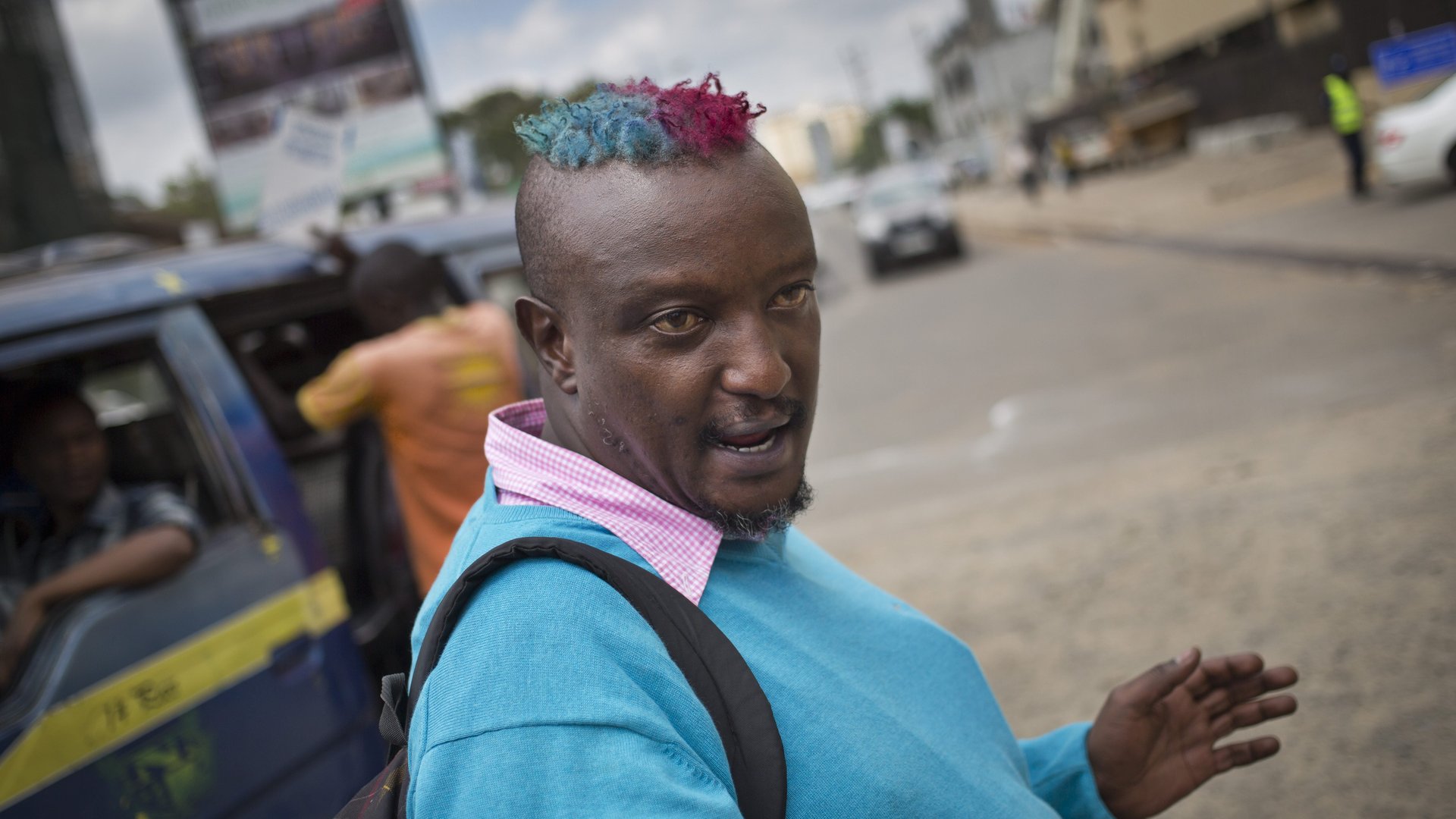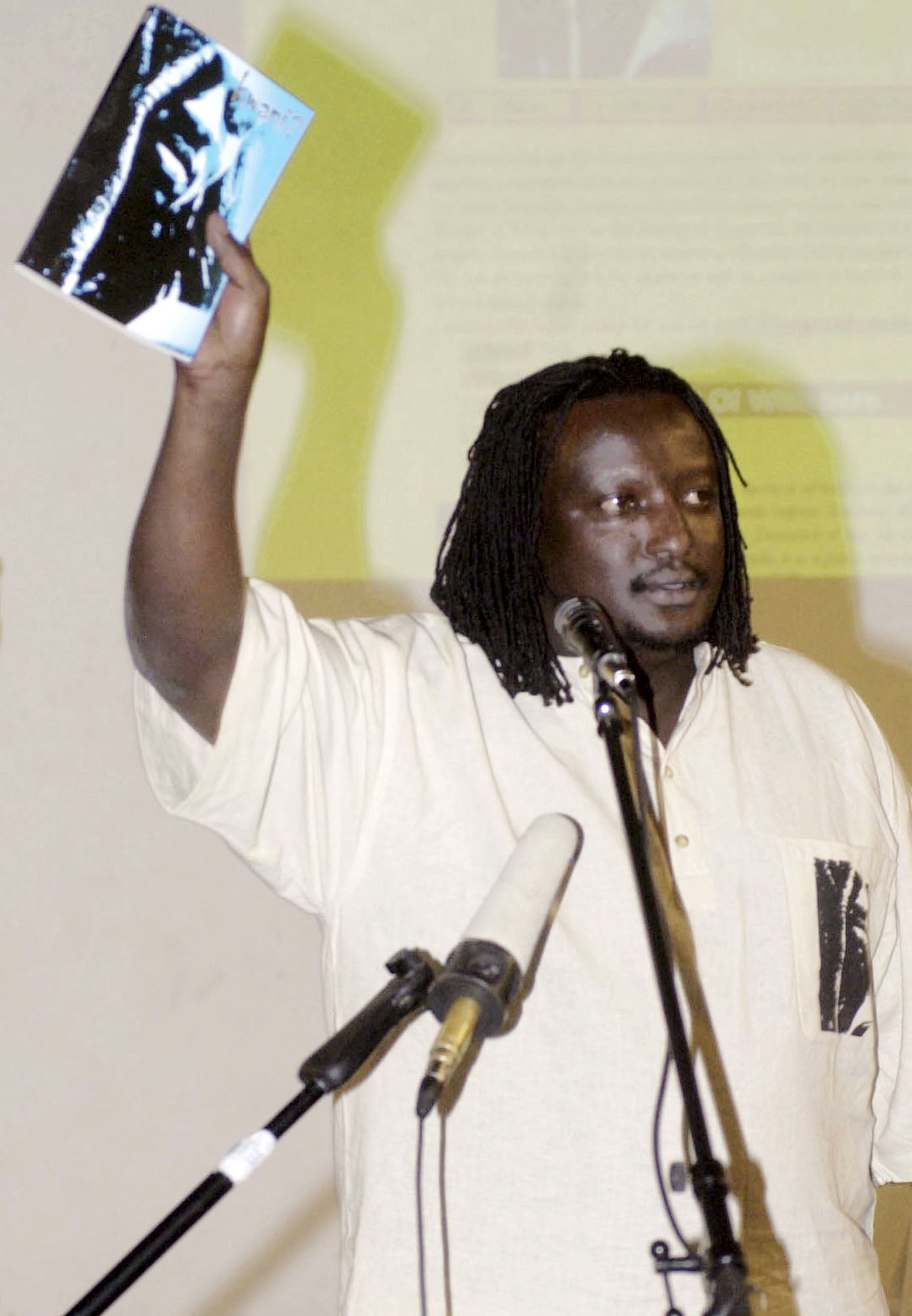Binyavanga Wainaina’s biggest legacy was challenging Africans to free their imaginations
The last time I saw the Kenyan writer and thinker Binyavanga Wainaina was on an afternoon in mid-December 2017. There he was, in a street near my home southwest of the capital Nairobi, donning an orange African print dress, a beaded necklace, earrings, and taking his dog for a walk. It was a sight that stopped many in the neighborhood’s shopping center in their tracks, with some openly gasping and others ruminating on the brawny man in colorful attire smiling in their direction.


The last time I saw the Kenyan writer and thinker Binyavanga Wainaina was on an afternoon in mid-December 2017. There he was, in a street near my home southwest of the capital Nairobi, donning an orange African print dress, a beaded necklace, earrings, and taking his dog for a walk. It was a sight that stopped many in the neighborhood’s shopping center in their tracks, with some openly gasping and others ruminating on the brawny man in colorful attire smiling in their direction.
In many ways, that was quintessential Wainaina, who died on Wednesday (May 22) after a short illness aged 48. For all his accumulated years, and especially in the last two decades, he stood out not just in his idiosyncratic dress habits but as a foremost witty contrarian, a sharp intellectual, and a beautiful writer with preternatural competence.
Through his short stories, essays, and award-winning memoir, Wainaina disassembled societal dynamics, parsed Kenyan social and creative life, and called all to political action. His death brought an end to one of the most storied careers in modern Kenyan and African literature.

When he wasn’t enriching the vocabulary of our minds, Wainaina was warning readers against the “tyranny of small minds” and offering a panorama of where we were heading as a continent. In his speeches, he exhorted young Africans to create and innovate new models of development based on talent, tradition, and technology. His wisdom shone through the interstices of his sentences, issuing a clarion call to action in a nation where corruption and ramrodded legislation seemed to inspire collective fatigue.
Binyavanga was a member of the cultural, political, and economic elite of Kenya, yet he saw the country’s progress or lack thereof through the lens of the common mwananchi. When he erred, like “for not seeing through the attempts to rig” Kenya’s 2013 election, he apologized, writing, “What I want for Kenya is the same opportunities for rich people as for poor people.”

In trying to upend the norm, Wainaina undertook groundbreaking work. After winning the 2003 Caine Prize for African writing, he went on to set up the literary journal Kwani? (“So what?” in Swahili), quickly becoming a singular force of literary activism championing the careers of young writers. Binyavanga also grasped the full dynamism of African languages, embracing, for instance, the conversational code-switching inherent in Sheng, a slang that combines both English and Kiswahili.
Long before people started questioning “voluntourism” and “white-savior complex”, he schooled the world through his pointed, seminal and hilarious 2005 essay “How to write about Africa.”
After the publication of his memoir One Day I Will Write About This Place in 2011, he solidified his position as a muscular storyteller who deserved a place in the pantheon of Africa’s great writers. The liquid smoothness of his writing was amplified when he published a “lost chapter” of his book in 2014 in which he comes out as gay to his mother.
His decision to come out, he said, was in response to a wave of legislation further criminalizing homosexuality in Uganda and Nigeria—catapulting him into the frontlines of gay rights advocacy. (On Friday, Kenya’s high court will rule on whether to decriminalize gay sex.)
Yet in thinking about his complete oeuvre, Binyavanga Wainaina’s most form-shattering work arguably lives not on paper but on video. In six short episodes released in 2014, he talks about why Africans should free their imaginations. With his blue and maroon-dyed hair, he speaks about the systems that have instituted the “bankruptcy” of thought and analysis in the continent, and why we “have to go into the offense to make new things.”
It was in recognition of this boundary-breaking work and influential initiatives in African literature and activism that Quartz named him on our inaugural list of Africa Innovators in 2015.
To be creative and innovative and shake the system with ideas and new stories is a scary undertaking, he argued, but it’s “the most political act one can have.”
To be modern for Binyavanga Wainaina—and German philosopher Friedrich Nietzsche too—was to unshackle from the past but remain rooted in history so as to shape and build a new future. More than any modern Kenyan author, Wainaina repeatedly showed us that he was a writer and thinker whose ideas embodied this young century.
Sign up to the Quartz Africa Weekly Brief here for news and analysis on African business, tech and innovation in your inbox